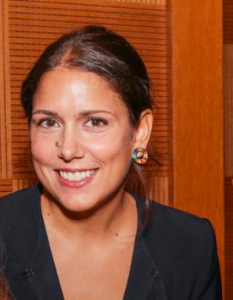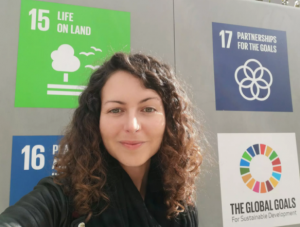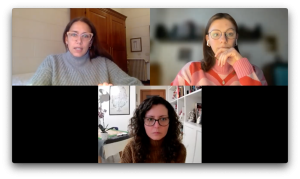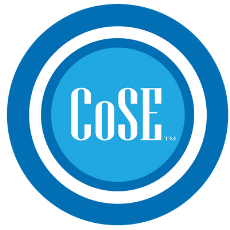Written and hosted by: Giulia D’ Amico
Reading time: 10 minutes
Interview with representatives from the Italian Alliance for Sustainable Development (ASviS)
On January 26, our Content Creator, Giulia D’Amico, had an engaging and extremely interesting conversation with two representatives of the Italian Alliance for Sustainable Development (ASviS), Martina Alemanno and Ottavia Ortolani. The Alliance was founded in 2016 to raise awareness in Italian society, economic actors, and institutions of the importance of the 2030 Agenda for Sustainable Development and to mobilize them to achieve the Sustainable Development Goals (SDGs). It can now be considered the most active and renowned Italian organization that works on sustainable development, through its ASviS Annual Report (put link) and its Festival of Sustainable Development, and international advocacy activities. ASviS represents one of the most effective initiatives that support sustainable development in all its fields – ranging from education to environmental sustainability and youth empowerment.
Martina is Head of Education and Awareness Raising for the Young Generations, she is in charge of relations with the Ministry of Education and is the contact person for the ASVIS working groups dedicated to Goal 4, education for global citizenship and youth organizations.
Ottavia is Head of Communication and Advocacy Projects and administers collaborations with Rai and ANSA, as well as with international organizations.
Evolving issues
During the interview, Martina and Ottavia were asked to address some of the most critical issues they have encountered in Italy in promoting the 2030 Agenda. On the one hand, when the 2030 Agenda was launched, there was still a lack of awareness of the multidimensionality of the phenomenon. In fact, the understanding of sustainability in Italy was mainly centered on environmental issues. Moreover, the media have historically been more focused on current events and short-term controversies, whereas the 2030 Agenda calls for a long-term plan of action. Over the years, ASviS’ activities and civil society awareness-raising through the work of the younger generation (e.g. Fridays for Future) have helped the public and the media to make the connections between the climate, economic and social dimensions. In fact, the COVID19 pandemic did not simply lead to a health crisis, but also to an economic and social one; this further enabled people to realise the interconnection between these different areas.
Moreover, at the policy level, both the EU and the Draghi government in Italy have brought sustainability to the forefront through the Next Generation Eu and the PNRR. A survey conducted in 2021 during the lockdown showed that certain segments of the elites perceive sustainability as an urgent and central issue, while more disadvantaged communities feel that more short-term solutions are more urgent. Therefore, it is paramount that information on sustainability is properly disseminated, while avoiding greenwashing communication (communicating without real knowledge or superficially).

Ottavia Ortolani – Responsabile dei progetti di comunicazione e advocacy e amministra le collaborazioni
SDG4 – Education
Secondly, they were asked to focus on the Italian education system and whether it guarantees the promotion of human rights, gender equality, culture of peace and non-violence (SDG4). In fact, in 2016, the Italian Ministry of Education signed a memorandum of understanding with ASviS for the promotion and implementation of projects concerning the 2030 Agenda goals. Following the reintroduction of civic education teaching in 2019, the Agenda became one of the topics to be covered in the 33 hours dedicated to this teaching. Moreover, since the launch of the 2030 Agenda, ASviS has been offering a wide range of tools and self-education on sustainable development (more can be found in Italian here). Furthermore, we know that in recent years many youth movements have mobilized around these issues, showing how much the attention of the younger generations is high. The educational world is extremely sensitive to this issue, as it represents the point of contact between children, families, the community, and the environment: teachers and educators are key players in promoting the values of sustainable development.
Youth Empowerment
Thirdly, our interviewer raised a specific question regarding the type of skills that are currently being taught to young Italian students to promote youth empowerment. In fact, the education system should prepare students for being able to cope with the current difficulties of working in the field of sustainable development. In this regard, being an ‘alliance’, ASviS was founded on the principle of collaboration of various actors. Indeed, schools are not the only ones responsible for education; rather, the whole community transfers values to citizens thus contributing to youth empowerment and education. Schools should encourage systemic thinking: thus, the interconnection between various spheres of society which helps the resolution of day-to-day problems also related to the professional realm. New professions are emerging, and many old ones have changed; it is, therefore, paramount that students learn to develop more varied and effective skills alongside systemic thinking about interrelated problems and solutions. Therefore, cooperation projects should be promoted so that students can encounter larger realities and a wider variety of actors. Indeed, ASviS represents an interconnected network created on this cooperative principle bringing together people with different backgrounds and interests.

Martina Alemanno – Responsabile Educazione e Sensibilizzazione per le Giovani Generazion
Institutional Support
Martina and Ottavia were asked to discuss whether national institutions consider sustainable development to be an urgent matter. Based on the support ASviS has received from state agencies, sustainable development is at an historic turning point. While its core principles are currently discussed in parliament, the Draghi government has been highly attentive in directing investments towards economic, ecological, and social sustainability. In particular, it has established the new Ministry for Ecological Transition and renamed the Ministry for Infrastructure into ‘Ministry for Infrastructure and Sustainable Mobility’. Therefore, it is evident that the 2030 Agenda is increasingly relevant both in the political, economic, and social realms. Thanks to organizations – such as ASviS – Italy enjoys a great number of activities that promote sustainable development, training, and awareness-raising.
Lastly, an historical turning point has been marked by Italy who has just approved – on 8 February 2022 – the amendment of the Constitution to include environmental protection and the safeguard of future generations. These values are shared on a global basis and supported by national and international institutions. Indeed, at the European Union level, they fit perfectly into the NextGenerationEU plan for a “healthier, greener, and more digital Europe”.

Our Content Creator Guilia D’ Amico on the right and wo representatives of the Italian Alliance for Sustainable Development (ASviS), Martina Alemanno and Ottavia Ortolani
*Italian Translation
ll 26 gennaio la nostra Content Creator, Giulia D’Amico, ha avuto una conversazione coinvolgente ed estremamente interessante con due rappresentanti dell’Alleanza Italiana per lo Sviluppo Sostenibile (ASviS), Martina Alemanno e Ottavia Ortolani. L’Alleanza è stata fondata nel 2016 per sensibilizzare la società, gli attori economici e le istituzioni italiane sull’importanza dell’Agenda 2030 per lo Sviluppo Sostenibile e per mobilitarli al raggiungimento degli Obiettivi di Sviluppo Sostenibile (SDGs). Oggi può essere considerata la più attiva e rinomata organizzazione italiana che lavora sullo sviluppo sostenibile, attraverso il suo Rapporto Annuale ASviS (metti link) e il suo Festival dello Sviluppo Sostenibile, e le attività di advocacy internazionale. L’ASviS rappresenta una delle iniziative più efficaci che sostiene lo sviluppo sostenibile in tutti i suoi campi – dall’educazione, alla sostenibilità ambientale, all’empowerment giovanile. Martina è responsabile dell’area Educazione e sensibilizzazione delle giovani generazioni, cura i rapporti con il Ministero dell’Istruzione ed è la referente dei gruppi di lavoro dell’ASviS dedicati al Goal 4, all’educazione alla cittadinanza globale e alle organizzazioni giovanili. Ottavia è responsabile dei progetti di comunicazione e advocacy e gestisce le collaborazioni con Rai e ANSA, oltre che con organizzazioni internazionali.
Questioni in evoluzione
Durante l’intervista è stato chiesto a Martina e Ottavia di affrontare alcune delle maggiori criticità che hanno riscontrato in Italia rispetto alla promozione dell’Agenda 2030. Da un lato, quando l’Agenda 2030 è stata lanciata, mancava ancora la consapevolezza della multidimensionalità del fenomeno. Infatti, la comprensione della sostenibilità in Italia era principalmente centrata sulle questioni ambientali. Inoltre, i media sono storicamente più focalizzati sull’attualità e sulle controversie di breve periodo, mentre l’Agenda 2030 richiede un piano d’azione a lungo termine.
Negli anni, grazie all’attività dell’ASviS e alla sensibilizzazione della società civile attraverso l’attività delle giovani generazioni (es. Fridays for Future), hanno aiutato l’opinione pubblica e i media a fare i collegamenti tra dimensione climatica, economica e sociale. In effetti, la pandemia di COVID19 non ha portato semplicemente a una crisi sanitaria, ma anche economica e sociale; questo ha ulteriormente permesso alle persone di rendersi conto dell’interconnessione tra questi diversi ambiti. Inoltre, a livello politico, sia l’UE che il governo Draghi in Italia hanno messo al centro la sostenibilità con il Next Generation Eu e il PNRR. Un sondaggio condotto nel 2021 durante il lockdown ha evidenziato che alcuni segmenti dell’élite percepiscono la sostenibilità come una questione urgente e centrale, mentre le comunità più svantaggiate ritengono che le soluzioni più a breve termine siano più urgenti. Ecco perché è fondamentale che l’informazione sulla sostenibilità sia diffusa correttamente, evitando il greenwashing (comunicare senza una reale conoscenza o superficialmente). Ed è per questo che la comunicazione e l’informazione sull’urgenza dell’Agenda 2030 rimangono una priorità.

Ottavia Ortolani – Responsabile dei progetti di comunicazione e advocacy e amministra le collaborazioni
SDG4 – educazione
In secondo luogo, è stato chiesto loro di concentrarsi sul sistema educativo italiano e se garantisce la promozione dei diritti umani, l’uguaglianza di genere, la cultura della pace e della non violenza (SDG4). Infatti, nel 2016, il Ministero dell’Istruzione italiano ha firmato un protocollo d’intesa con l’ASviS per la promozione e la realizzazione di progetti riguardanti gli obiettivi dell’Agenda 2030. A seguito della reintroduzione dell’insegnamento dell’educazione civica nel 2019, l’Agenda è entrata tra i temi da trattare nelle 33 ore dedicate a questo insegnamento. Inoltre, dal lancio dell’Agenda 2030, l’ASviS offre una vasta gamma di strumenti e autoformazione sullo sviluppo sostenibile (https://asvis.it/educazione-allo-sviluppo-sostenibile/). Inoltre, sappiamo come negli ultimi anni molti movimenti giovanili si siano mobilitati su queste tematiche, mostrando quanto l’attenzione da parte delle giovani generazioni sia alta. Il mondo della scuola è estremamente sensibile a questo, essendo il fulcro della comunità educante e punto di contatto tra bambini, famiglie, comunità e ambiente: docenti, educatrici e educatori sono attori chiave nella promozione dei valori dello sviluppo sostenibile.
Empowerment dei giovani
In terzo luogo, il nostro intervistatore ha posto una domanda specifica sul tipo di competenze che vengono attualmente insegnate ai giovani studenti italiani al fine di promuovere l’empowerment giovanile. Infatti, il sistema educativo dovrebbe preparare gli studenti ad essere in grado di affrontare le difficoltà attuali del lavoro nel campo dello sviluppo sostenibile. A questo proposito, essendo un'”alleanza”, l’ASviS è stata fondata sul principio della collaborazione di vari attori. Infatti, le scuole non sono le uniche responsabili dell’educazione; piuttosto, l’intera comunità trasferisce valori ai cittadini contribuendo così all’empowerment e all’educazione dei giovani. La scuola dovrebbe incoraggiare il pensiero sistemico: quindi, l’interconnessione tra le varie sfere della società che aiuta la risoluzione dei problemi quotidiani anche legati alla sfera professionale. Stanno emergendo nuove professioni e molte di quelle vecchie sono cambiate; quindi è fondamentale che gli studenti imparino a sviluppare competenze più varie ed efficaci, accanto al pensiero sistemico di problematiche e soluzioni tra loro interconnesse. Infatti, l’ASviS rappresenta una rete interconnessa creata su questo principio cooperativo che riunisce persone con diversi background e interessi.

Martina Alemanno – Responsabile Educazione e Sensibilizzazione per le Giovani Generazion
Sostegno istituzionale
A Martina e Ottavia è stato chiesto di discutere se le istituzioni nazionali considerano lo sviluppo sostenibile una questione urgente. Sulla base del sostegno che l’ASviS ha ricevuto dalle agenzie statali, lo sviluppo sostenibile è ad un punto di svolta storico. Mentre i suoi principi fondamentali sono attualmente in discussione in parlamento, il governo Draghi è stato molto attento nell’indirizzare gli investimenti verso la sostenibilità economica, ecologica e sociale. In particolare, ha istituito il nuovo ministero per la transizione ecologica e ha rinominato il ministero delle infrastrutture in “ministero delle infrastrutture e della mobilità sostenibile”. Pertanto, è evidente che l’Agenda 2030 è sempre più rilevante sia sul piano politico, economico e sociale. Grazie a organizzazioni – come l’ASviS – l’Italia gode di un gran numero di attività che promuovono lo sviluppo sostenibile, la formazione e la sensibilizzazione.
Infine, una svolta storica è stata segnata dall’Italia che ha appena approvato – l’8 febbraio 2022 – la modifica della Costituzione per includere la tutela dell’ambiente e la salvaguardia delle generazioni future. Questi valori sono condivisi a livello globale e sostenuti dalle istituzioni nazionali e internazionali. A livello di Unione Europea, infatti, si inseriscono perfettamente nel piano NextGenerationEU per un'”Europa più sana, più verde e più digitale”.

Giulia D’ Amico Content Creator: International and European Politics
Giulia is an Italian young professional from Palermo. She holds a Bachelor’s Degree in Politics Philosophy and Economic at LUISS Guido Carli in Rome and a Master’s Degree in Conflict Security and Development at King’s College of London. She is very passionate about the fight against transnational organized crime, poverty’s eradication and conflict resolution; indeed, she worked as Associate at the Global Initiative Against Transnational Organized Crime. She is also very interested in women’s empowerment and emancipation as well as women inclusion in policy-making processes and institutions. Indeed, she joined the Women in War and International Politics association at King’s where she covered the position of Junior Editor. She is fluent in Italian, English and French – she loves writing and doing creative activities.
